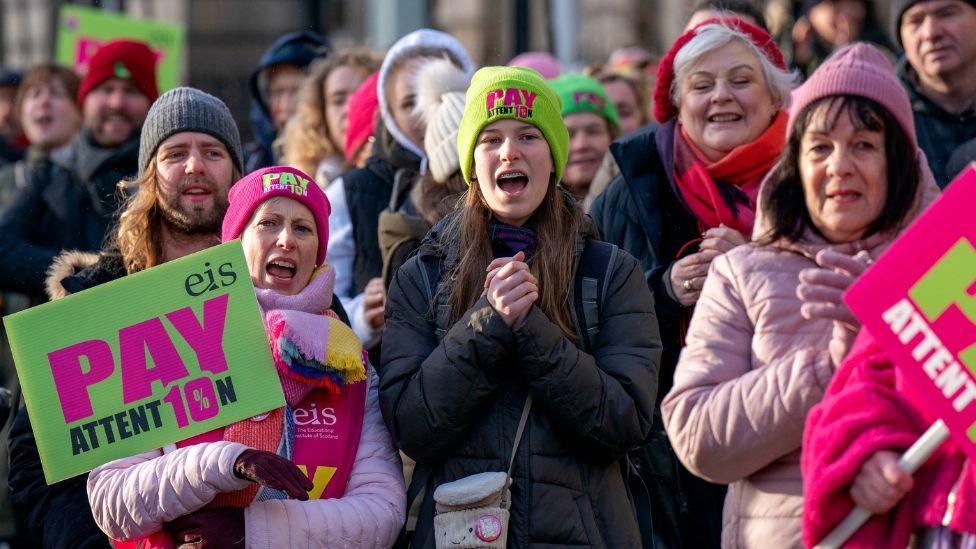School closures: Which teachers in Scotland are striking and when?
- Published
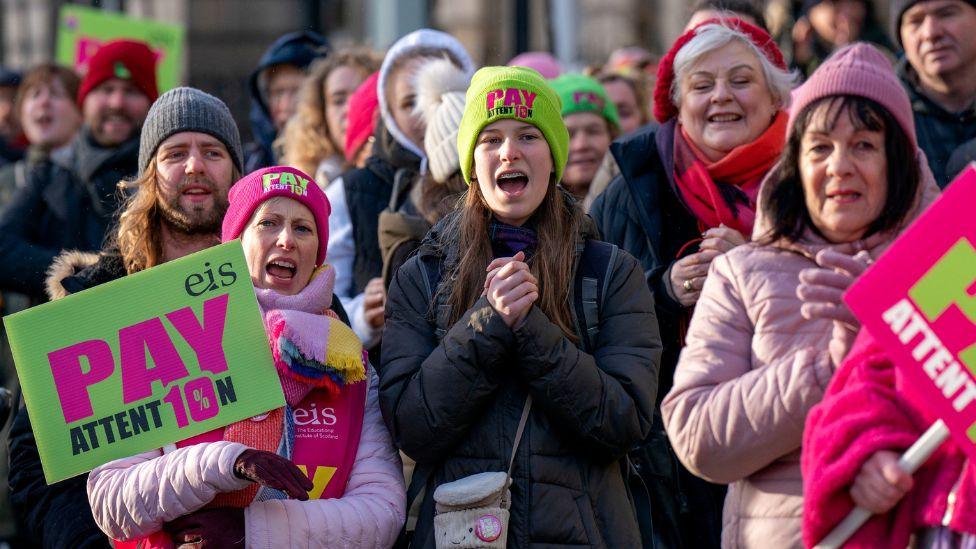
Teachers are taking part in 16 days of rolling strikes with a further 22 days of action announced for spring
Teachers in Scotland have begun a third week of rolling strikes, with every local authority affected over the period.
Members of the Educational Institute of Scotland (EIS) are striking in two local authorities per day from 16 January until 6 February.
Union leaders have warned there is no end in sight to the current pay dispute.
Teachers want a 10% uplift, which ministers and councils have said is unaffordable.
The current 5% offer includes rises of up to 6.85% for the lowest-paid staff.
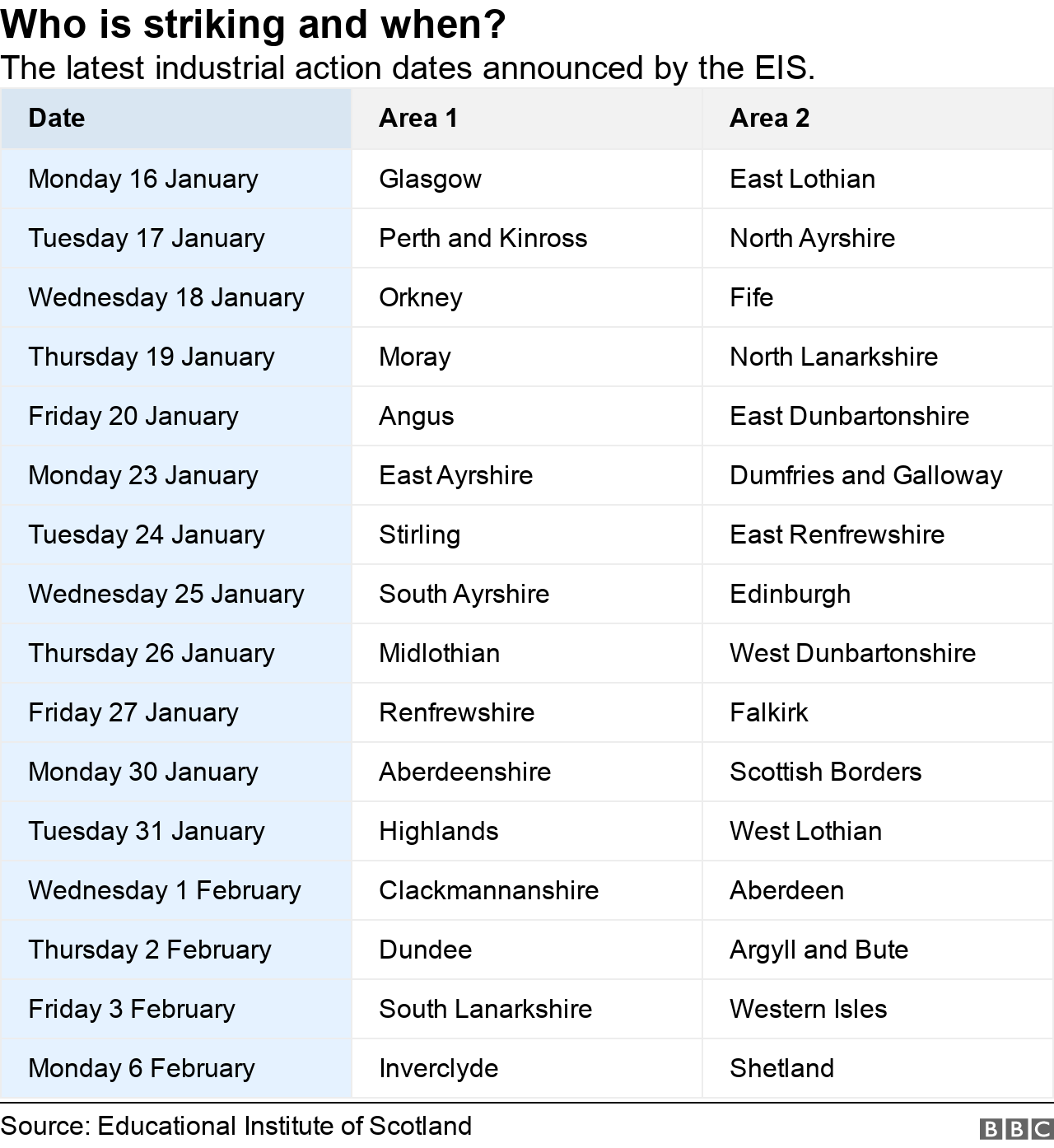
The EIS recently announced a further 22 days of extra strikes between 13 March and 21 April.
It will include two days of national strike action in all schools on 28 February and 1 March, followed by a rolling programme of strikes for 20 days between 13 March and 21 April.
This round of action will be more complicated, with different schools in each local authority hit over three days - primaries on the first day, all schools on the second and secondaries on the third.
The NASUWT and the SSTA unions will also be going on strike on 28 February and 1 March.
Education Secretary Shirley-Anne Somerville has said she remained committed to a "fair and sustainable pay deal".
Any new offer would need to be agreed by all 32 council leaders but they are not due to meet until towards the end of January.
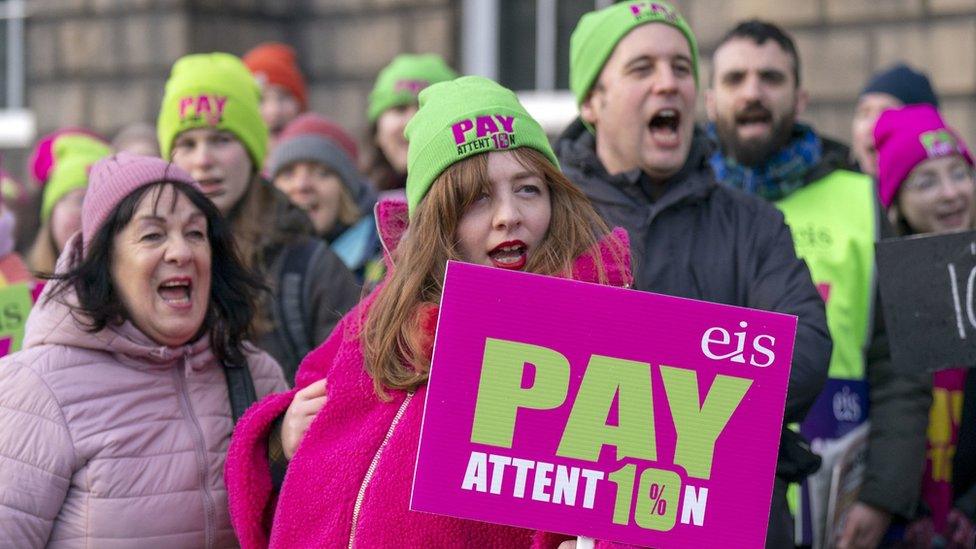
Members of the EIS union demonstrated outside Bute House in Edinburgh, the official residence of the first minister of Scotland
Strikes recently closed almost every primary and secondary school in Scotland across two days.
The strikes also saw all four unions representing teachers and headteachers walk out together for the first time.
Members of the EIS, Scotland's largest teaching union, the NASUWT, Scottish Secondary Teachers' Association (SSTA) and the Association of Headteachers and Deputes (AHDS) unions were involved.

Are you a teacher planning to strike? Or a parent whose children's school is affected by strikes? Share your experiences by emailing haveyoursay@bbc.co.uk, external.
Please include a contact number if you are willing to speak to a BBC journalist. You can also get in touch in the following ways:
WhatsApp: +44 7756 165803
Tweet: @BBC_HaveYourSay, external
Please read our terms & conditions and privacy policy
If you are reading this page and can't see the form you will need to visit the mobile version of the BBC website to submit your question or comment or you can email us at HaveYourSay@bbc.co.uk, external. Please include your name, age and location with any submission.
- Published16 January 2023
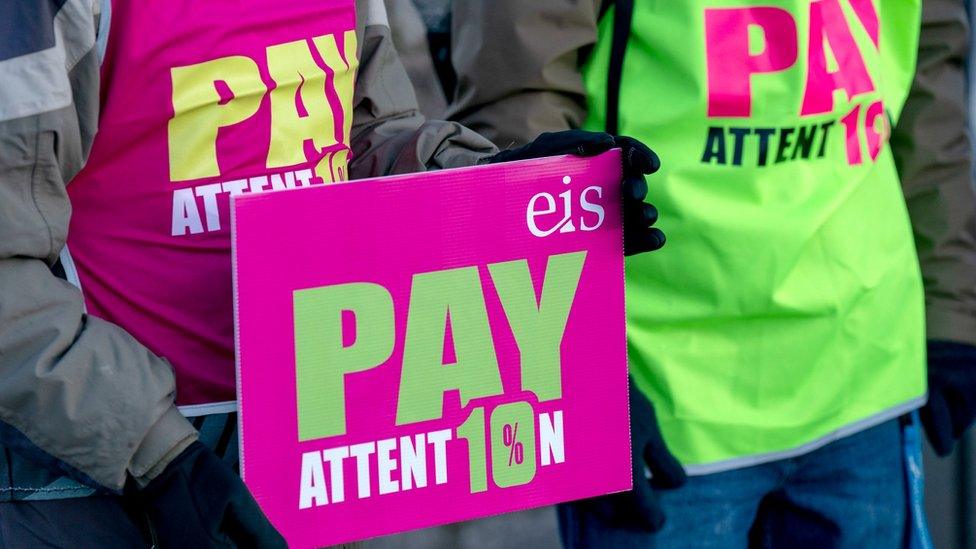
- Published13 January 2023
